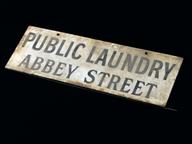

Two wristbands from each vaccine dose and informed consent paperwork from the Oxford/AstraZeneca vaccine trial for COVID-19, made in England, used by vaccine trial volunteer Abbee Hanlon in 2020 as part of the phase 2/3 trials
Abbee Hanlon was one of 10,260 people who volunteered to be part of the phase 2/3 trials of the Oxford-AstraZeneca vaccine trial.
Phase 2 trials tested the vaccine in people aged over 56 years and those between 5 to 12 years of age. This was to see how age affected a person’s immune response. Phase 3 trials studied the vaccine in people over 18. Its’ aim was to see how well the vaccine prevented people becoming infected with COVID-19. Adults in the trial were randomly selected to received one or two doses of the COVID-19 vaccine or a type of meningitis vaccine that acted as a control. This prevented volunteers knowing whether they had received the new vaccine or not. The trial co-ordinators did not want volunteers to change their behaviour, potentially biasing the results of the trial.
Prior to the pandemic, clinical trials were carried out in consecutive stages and could take years to complete. Delays could be due to getting approval for trials, not having enough volunteers, funding and working with manufacturers.
For over 10 years, The Oxford Vaccine Group were working on vaccines in case of a pandemic. They had researched into another coronavirus, MERS. Knowing that this approach worked, they could run parts of the trial at the same time, rather than in sequence. Due to the fast moving pandemic, funding and partnerships with pharmaceutical companies became more widely available.
Details
- Category:
- Public Health & Hygiene
- Object Number:
- 2023-863
- Materials:
- paper (fibre product) and plastic (unidentified)
- Measurements:
-
overall (paperwork): 297 mm x 420 mm
- type:
- wristbands




